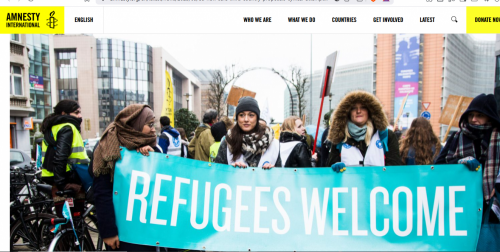
https://www.amnesty.org/en/latest/news/2025/05/eu-new-safe-third-country....
Responding to the European Commission’s proposal to amend the ‘safe third country’ concept by allowing EU member states to forcibly send people seeking asylum to countries where they have no connection, without the possibility to appeal from the EU, Olivia Sundberg Diez, Amnesty International’s EU Advocate on Migration and Asylum, said:
“Instead of spending endless time and resources offloading its responsibilities to other countries, the EU should invest in its own asylum systems and let people seeking asylum start rebuilding their lives.
“These proposals are yet another cynical attempt to evade the EU’s refugee protection responsibilities, shifting them to countries with fewer resources and less capacity to offer lasting protection. Sending people to countries to which they have no connection, no support and no prospects, or may have only briefly transited through, is not only chaotic and arbitrary, but also devastating on a human level.
“Let’s be clear: This revision would only further weaken access to asylum in Europe, downgrade people’s rights, and increase the risk of refoulement and of widespread arbitrary detention in third countries – especially in light of the EU’s increasingly evident inability to monitor and uphold respect for human rights in its partner countries.”
Background
The ‘safe third country’ concept allows states to reject an asylum application as inadmissible when it is deemed that an applicant could have sought international protection in a third country. This is an exception to the general practise of international refugee law, by which the country in which a person applies for international protection bears primary responsibility for assessing their application.
Amnesty International has long criticized this concept, which European states have often used to shirk their obligations, even as UNHCR data shows that 71% of refugees worldwide are hosted in low- and middle-income countries.
EU states remain obliged to conduct an individual assessment of whether the third country is safe for that person and to ensure that every applicant can access a fair asylum process, have their case heard, and rebut any evidence from the returning state.
The European Commission’s proposal removes the requirement that a meaningful link exist between the asylum seeker and that third country. Instead, mere transit or the existence of an agreement between the EU member state and the third country would suffice. It also removes the suspensive effect of appeals, meaning that people could still be forcibly transferred to that country before their appeal has been heard. This reform goes hand in hand with the recently proposed Return Regulation. Taken together, these amount to an alarming attempt to externalize refugee protection and migration control far from Europe’s borders.
This proposed amendment to the Asylum Procedures Regulation will now be negotiated and would need to be approved by the European Council and the European Parliament.









